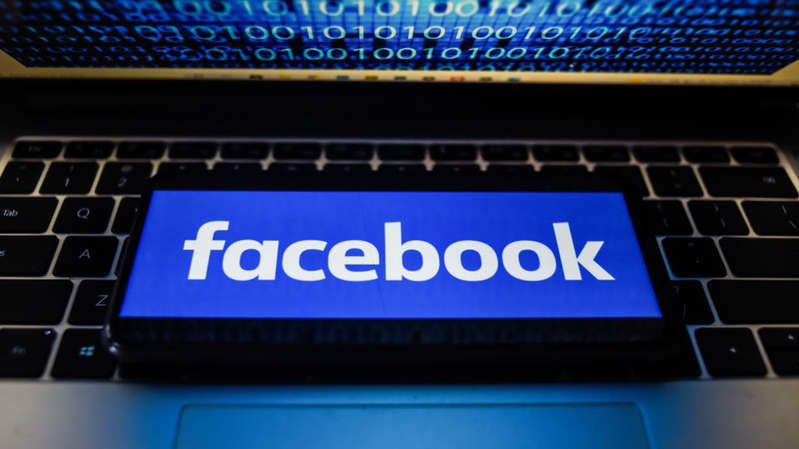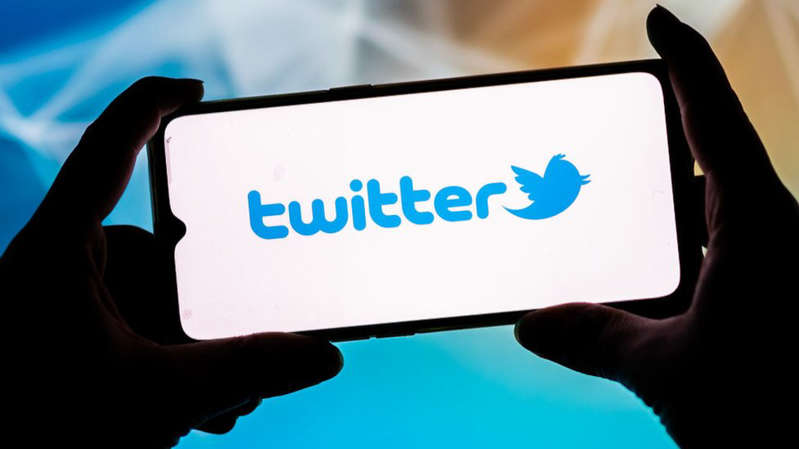
Roskomnadzor drew up a protocol on Facebook, according to which the social network faces a fine of up to 10% of annual revenue in Russia. Although the American company complied with the requirements of the authorities and removed the prohibited content, which they pointed to. Roskomnadzor for the first time requires a turnover fine to be applied to Facebook.
For which a revolving fine is offered for the first time
Roskomnadzor, in the presence of a Facebook representative, drew up an administrative protocol for repeated non-deletion of materials containing information prohibited in Russia on Facebook and Instagram social networks (under Part 5 of Article 13.41 of the Administrative Offenses Code of the Russian Federation), according to a press release issued by the department. on Tuesday.
The protocol will be submitted to the court, which will decide exactly how much the American IT company should be fined. She faces a fine ranging from 5% to 10% of annual revenue in Russia.
As follows from the message of Roskomnadzor, as evidence of Facebook's guilt, links were given to nine materials, according to which Roskomnadzor has sent more than 110 notifications since 2019 – 60 notifications on four materials on Facebook and 53 notifications on five materials on Instagram.
When Facebook representatives were summoned to draw up a protocol on a repeated violation, the moderation services of Facebook and Instagram deleted these nine materials, but the Russian supervisory authority considers this insufficient: “According to Russian law, the company is obliged to do this within 24 hours after receiving a notification from Roskomnadzor “.
Roskomnadzor for the first time demanded to apply a turnover fine to Facebook. What is contained in these publications is unknown.
The company does not have a separate legal entity in Russia, therefore there is no public data on its revenue in the country. The head of the Safe Internet League, Ekaterina Mizulina, told Vedomosti that last year Facebook's revenue in Russia amounted to about 39 billion rubles (she did not specify the source of the information). In this case, the fine may amount to 2-4 billion rubles, that is, approximately 27.6-55.2 million dollars.
- Battle for Runet. Top questions about Russia's fight against Western social media
- Roskomnadzor threatened YouTube with blocking due to removal of RT channels
- Roskomnadzor blocks six more VPN services
Sh traffic for 70 million rubles
In Russia, Facebook has already been fined in the amount of more than 70 million rubles. On some of them, court decisions entered into force, but the company has not paid them yet, noted in Roskomnadzor.
Prior to that, Facebook had paid smaller fines. For example, in November last year, the social network paid a fine of 4 million rubles for violating the law on personal data.
The Russian authorities can regularly fine Facebook, but if the company does not pay the fines, it is difficult to enforce them because the social network does not have a representative office in Russia.
In July, Russian President Vladimir Putin signed a law according to which Facebook and other international social networks should open a branch in Russia in 2022. In case of refusal, additional sanctions may be applied to the social network in addition to restricting access or blocking. Among them, for example, limiting payments in favor of the company and a ban on advertising distribution.
Now Roskomnadzor may demand to restrict access to Facebook or completely block it on the territory of Russia – for the same reasons for which LinkedIn was previously blocked, attempts were made to block Telegram and Twitter was slowed down. The authorities have enough legal grounds for blocking, experts say.
- Roskomnadzor slows down Twitter. How it works?
- “Roskomnadzor slowed me down.” Russian Twitter Users Joke About New Restrictions
- Mark Zuckerberg apologized for the global failure of Facebook services
Data transfer to Russia
The Russian authorities have long been able to block the Facebook social network for Facebook's refusal to transfer data about Russian users to Russia. The storage of personal data of Russian users on the territory of the country has been provided for since 2015 by the “anti-terrorist package” of laws of the deputy Irina Yarovaya.
For refusing to transfer servers with data to Russia in 2016, by the decision of the Tagansky Court of Moscow, the recruiting social network LinkedIn was blocked. Facebook has already been threatened with blocking and fined, but it has not yet reached the point of restricting access to the social network.
Roskomnadzor demanded that Facebook move its servers to Russia back in 2016. This requirement was provided by the law “On personal data”. Since 2015, information about Russian users of social networks must be stored in Russia.
Alexander Zharov, who at that time was head of Roskomnadzor, threatened with blocking if Facebook refused to comply with the Russian data localization law back in 2017.
After that, the company was fined twice for violations related to personal data. The last time the court fined the company 4 million rubles, which it later paid.
In March of this year, Roskomnadzor once again sent Facebook a demand to confirm that the company complies with the requirement of Russian legislation on the placement of personal data in Russia. Facebook again did not respond to this demand – and in July a protocol was drawn up against the company on a repeated violation of the requirement to localize databases. For this, the company faces a fine of up to 18 million rubles.
In 2019, the creator of the social network, Mark Zuckerberg, explained that the company will not transfer data to countries where human rights are violated.
Illegal content
Personal data has recently faded into the background. First of all, the world's social networks are fined for not deleting content that is recognized as prohibited information in Russia.
Facebook, like Twitter, can be slowed down or blocked for refusing to remove “illegal links and publications” (extremist materials, child pornography, suicide calls, drug use information, and so on).
In relation to Facebook, in 2021 alone, 19 protocols were drawn up for refusing to remove “illegal content”. This is over two thousand materials, according to Roskomnadzor.
Facebook was charged significant fines. In May, the company was ordered to pay 26 million rubles for refusing to remove prohibited content. It is also known that by October 19, Facebook must pay 17 million in fines under the other four regulations.
In March 2021, the Russian authorities began to slow down Twitter – also for the social network's refusal to delete publications banned in Russia. At that time, Roskomnadzor had data on 3168 unreleased materials “with prohibited information.”
In May, Roskomnadzor announced that it was partially abandoning the slowdown, because the moderators removed more than 91% of the information that the Russian authorities had complaints about.

Russian authorities started slowing down Twitter this spring
Encryption Keys
And one more reason, due to which access to Facebook may be restricted, is the company's refusal to provide the FSB with keys to decrypt the correspondence in the messenger. According to the requirements of the Yarovaya Law, after a request from the FSB, companies are given 10 days to transfer this data.
The FSB can only require encryption keys from those services that are already included in the register of organizers of information distribution (services where messages can be exchanged). It already has over 170 sites, including VKontakte, Odnoklassniki and Tinder.
There is no Facebook messenger in the registry yet. At the same time, it can be included in this list at any time, experts say, since it meets the relevant criteria.
Telegram founder Pavel Durov refused to provide the keys to the Russian authorities, saying it was technically impossible. In response, they tried to block Telegram, but this idea, as you know, was unsuccessful.
What's in store for Facebook this time
There is no need to wait for instant blocking of Facebook in case the company refuses to pay another fine, says Sarkis Darbinyan, leading lawyer of the Roskomsvoboda project. However, the authorities have more than enough grounds for blocking from the point of view of Russian law, he is sure.
“The legal instruments have already been created. Blocks are working more efficiently. It's up to political will. We do not know how the authorities will behave. Naturally, these decisions are made not by Roskomnadzor, but by the presidential administration. Everything is going on in stages. It is not possible to block all the Russian authorities in one day. can. This will mean the depoliticization of a huge number of users, “Darbinian told the BBC.
Restraining factors for the authorities may be the economic consequences of blocking Facebook as one of the largest advertising platforms and the possible sharp radicalization of a part of the population that will remain without access to the social network, Darbinyan believes.
The BBC has sent questions to Facebook about the fines and is awaiting a response.

